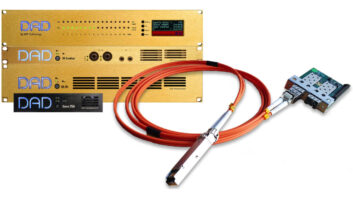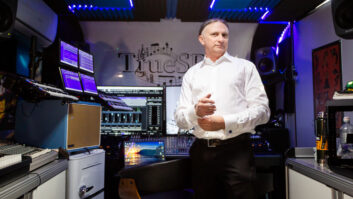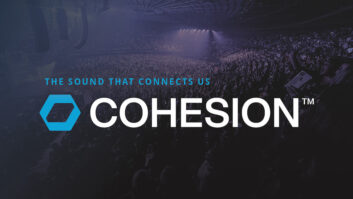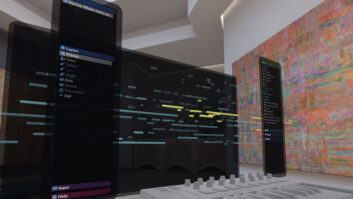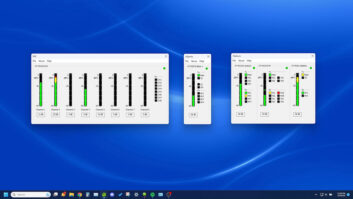Avid has introduced Pro Tools|HD Native for host-based audio processing. With version 8.5, Pro Tools HD software is a (very nearly) identical operating environment whether you are operating in a host-based or DSP-based system. Pro Tools|HD Native is a system, however, not just software.

Users tend to think about Native DAWs as software, as the DAW platform operating atop a given computer platform, using the host CPU for all internal audio processing. Of course, to use DAWs to accomplish anything requires a larger system. I/O used with a native DAW has to have driver support for the computer’s operating system and within the DAW software, as well as having interface hardware that is compatible with the host computer’s hardware (card slots, ports like FireWire and USB, etc.). The software for Pro Tools|HD Native is bundled with a required PCIe interface card that mates with external hardware using Avid’s DigiLink protocol, a category of hardware dominated by Avid themselves, though the protocol has been hacked by others.
I anticipate an inevitable restirring of the debate over proprietary versus open systems, and anticipate hearing a number of potential end-users crying, “foul.” “Avid is tying us to its hardware,” they’ll say, “it just wants to sell more I/O boxes.” Or, “I have converters I love already, I want Pro Tools HD, but I don’t want to replace all my hardware or buy an interface to go between my gear and the Native I/O card.” Or, “I wanted to use Pro Tools HD on my hot new laptop, but I don’t want to have to carry and hook up an external PCIe chassis.”
What we want from manufacturers may not always be practical or make good business sense. Especially with software, manufacturers can create a Frankenstein’s monster by trying to make everyone happy, introducing so much flexibility that you are bound up by options or face the pitfalls of hidden “gotchas.”
Products can be also be downgraded by a reach for the lowest common denominators. You want a Pro Tools rig that works with most any I/O, with a lesser computer, for a lower cost? That’s Pro Tools LE. But the consequence is a smaller feature set.
In its Digidesign incarnation, the audio company that is now part of Avid had, and debatably earned, a reputation as a company that did not play well with others. Recent moves like the inclusion of MADI in its HD interface line, and ASIO and Core Audio support for the Native I/O card, demonstrate a qualified trend towards openness.
With Pro Tools|HD Native, there’re users and applications for which the system is well suited, and there’re those that will want to work otherwise. Pros are using Pro Tools for real work, every day, in some incredibly sophisticated and mission-critical applications. Avid seems to be making a legitimate effort to make sure Pro Tools|HD Native will work for those whose applications fit between the Pro Tools LE model and the most complex applications of its more hardware-locked big brother while maintaining HD compatibility. Other nativeminded (including high-end) users will continue to gravitate towards systems based on host-based DAWs like Logic, Nuendo and Digital Performer.
There’s an industry-specific adage about standards and pro audio: “The good thing about pro audio standards is that there are so many of them to chose from.” We can cite a litany of bygone and current proprietary standards as examples, from digital tape machine digital interfaces to networked audio and control for live sound. The latter example is particularly apt as a goodly number of variously capable and creative protocols are in use at the same time as an active coalition works to promote and refine the open AVB standard.
Open standards are something audio pros need to encourage through the standards organizations like AES. That said, our relatively small and highly specialized industry will continue to see proprietary solutions offered by more agile and motivated entrepreneurs. There’s a balance in there somewhere.

